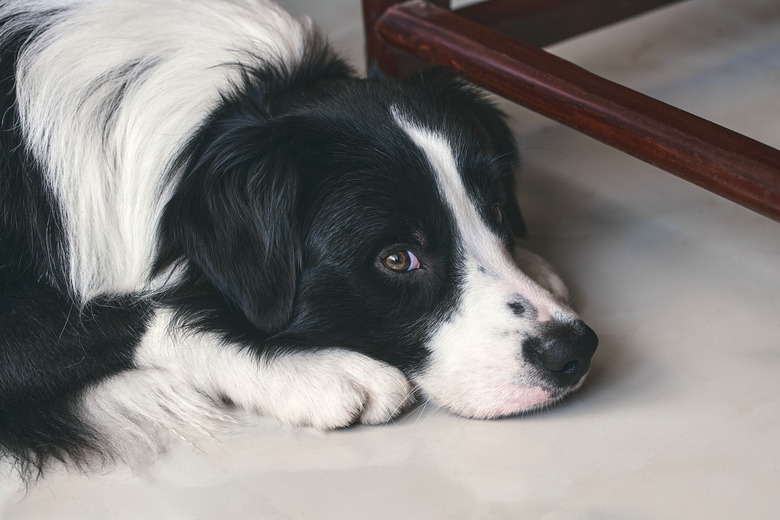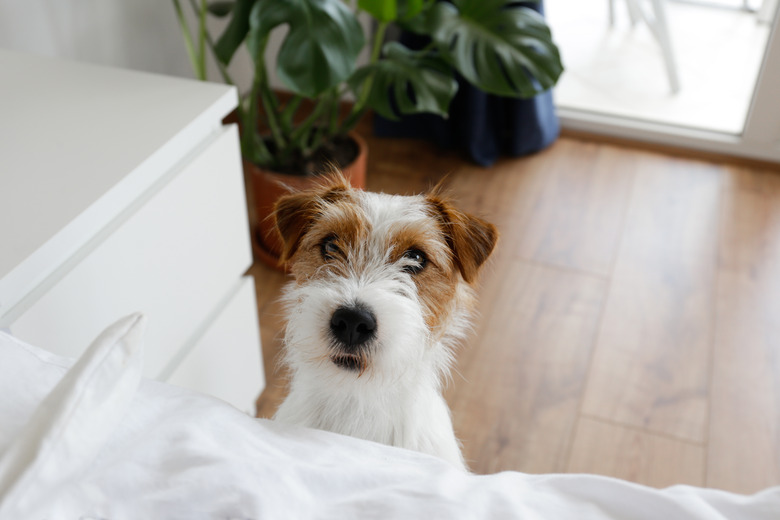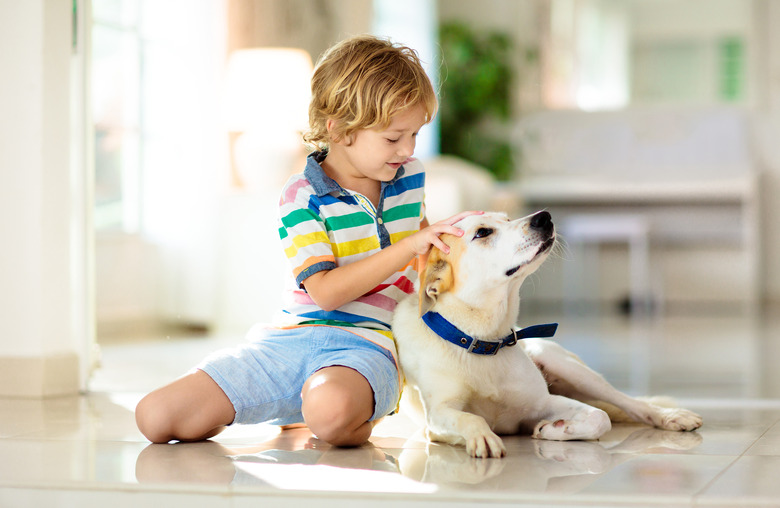Why Is My Dog Excessively Swallowing And Licking?
Some dogs are born lickers. You are greeted with licks when you get home or even when you get back from the mailbox. Your dog licks to groom themself and may end up more fastidious than the average cat. They may prefer to lick toys and treats before playing with or eating them.
However, no dog should lick all the time. If you keep noticing your dog swallowing like they have a blockage in their throat, tell your veterinarian. Add constant swallowing to the mix and your dog is telling you that something is wrong. The bottom line is that if your dog is continuously swallowing and licking, they require a veterinary examination and diagnosis.
Causes of a dog swallowing and excessive licking
Causes of a dog swallowing and excessive licking
- Nausea. If your dog keeps licking their lips and swallowing or you notice your dog keeps swallowing saliva, odds are they are feeling nauseous. Nausea can cause drooling in dogs, and the swallowing occurs because they are trying to eliminate excessive saliva in their mouth. Some dogs with nausea start licking odd objects, such as the walls. If the licking and swallowing last more than 24 hours, it's time to call the veterinarian.
- Mouth issues. Licking and swallowing may also indicate mouth issues, such as a foreign object stuck there, or teeth or periodontal problems. If possible, open your dog's mouth and inspect it but take precautions so they will not bite you. Look under the tongue for swelling or gently feel under the animal's jawline for swollen areas. Swelling may occur because fluid has accumulated in nearby tissues. A trip to the veterinarian is necessary to rule out dental disease.
Esophagitis and acid reflux in dogs
Esophagitis and acid reflux in dogs
If your dog is doing more swallowing than licking, esophagitis may prove to be the culprit. Esophagitis is inflammation of the esophagus, and it is often caused by acid reflux. Symptoms may include not only excessive swallowing but crying out when swallowing food or difficulty swallowing. Other esophagitis indicators include poor appetite, weight loss, increased mouth secretions or salivation, and neck pain.
Dogs with esophagitis may often exhibit regurgitation of food. Regurgitation differs from vomiting since the food is coming up shortly after it is swallowed from the esophagus, not the stomach. If the veterinarian determines acid reflux is the problem, solid food may be withheld from the dog for a few days while they are fed in another way, such as with a gastric tube or intravenously. The dog is then put on a low-fat and low-protein diet in which smaller meals are fed more often rather than one or two large meals daily.
Is your dog swallowing while trying to vomit?
Is your dog swallowing while trying to vomit?
Sometimes, the dog is not just licking their lips per se but starts licking the carpet or other items. If they are outside in good weather, it is likely they would try to eat grass to make themself throw up and relieve the nausea and upset stomach. If they are indoors or it is winter and no grass is available, the carpet may prove to be the next best thing in their mind. If there is grass outdoors, you may want to take them out so they can try a bit of this natural canine remedy.
Often, the dog will keep swallowing vomit and may even try to eat it. Try to obtain a sample or at the very least make detailed observations about the appearance of the vomit. This information can give your veterinarian important clues as to the cause. Some things dog owners can look for are:
- Is dog food present?
- If dog food is present, is the dog food slimy?
- Does it contain fresh blood or old blood that looks like coffee grounds?
- How soon before or after eating does the pet vomit?
- Is the vomiting accompanied by unproductive retching?
Take a video of your dog's behavior
Take a video of your dog's behavior
Although it is important for a veterinarian to see your pet, there's a good possibility that your dog's licking, swallowing, and gagging only happens occasionally and doesn't affect your dog health all the time. They may have frequent episodes, but they are not licking and swallowing all day long. That means when they are in the veterinarian's office, the veterinarian has only your description to go by. For that reason, it is wise for pet owners to use their phones to take videos of their dog licking and swallowing. This lets you show your veterinarian exactly what your dog is doing.
A video certainly will not mean that your dog doesn't need a physical examination and other testing, but it does give your veterinarian insight about the type of medical condition your dog is experiencing and the various reasons for it. The exact way your dog is swallowing, whether it is constant but otherwise normal, and whether your dog seems to gulp for air can also help your veterinarian determine the cause of your dog's discomfort or health issues.
The bottom line
The bottom line
If you notice your dog swallowing continuously and licking excessively for more than 24 hours, consult your veterinarian. Common causes could be mild nausea and upset stomach, which will pass. It could also indicate more serious health problems, such as periodontal problems, dental issues, or esophagitis. They might have a foreign body (like a piece of a toy or stick) stuck in their throat. Dog owners should observe their dog's symptoms and take a video if necessary to give the DVM as much information as possible. Only your veterinarian can determine the underlying cause and make a diagnosis.


